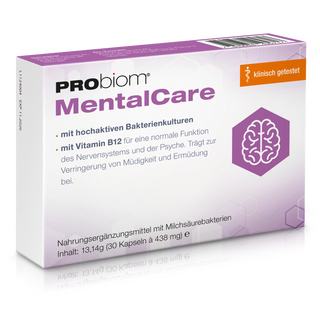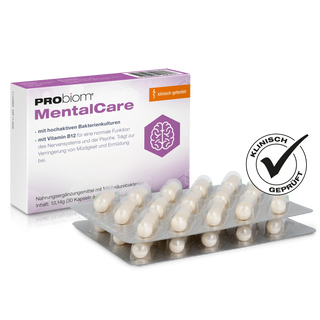Allergies are primarily considered a physical reaction to harmless environmental substances. However, a growing body of research is showing that the psyche also plays a crucial role. Stress, anxiety, or depression can exacerbate allergic reactions. Conversely, chronic allergies have a negative impact on mental balance. This blog post explores the interrelationship between allergies and the psyche and suggests ways for those affected to cope holistically.
What happens when you have an allergy?
In an allergy, the immune system overreacts to otherwise harmless substances such as pollen, house dust, or certain foods. This results in the release of histamine, which causes typical symptoms such as sneezing, itching, rash, or shortness of breath. These physical processes are closely linked to hormonal and neuronal control mechanisms, which are also influenced by psychological factors.
The role of the psyche in allergic diseases
Stress as an amplifier of allergic reactions
Psychological stress activates the hypothalamic-pituitary-adrenal (HPA) axis, leading to the release of stress hormones such as cortisol. These hormones can suppress the immune system in the short term but increase the tendency to inflammation in the long term. Studies show that stressed people can experience more severe allergic reactions than emotionally balanced people.
Anxiety and depression in allergy sufferers
Chronic allergic diseases such as hay fever, atopic dermatitis, or asthma are not only annoying, but can also have a significant impact on mental well-being. Constant itching, sleep disturbances, or the fear of an allergic flare-up impair quality of life. Studies show a higher risk of depression and anxiety disorders in people with allergies.
The vicious circle of allergy and psyche
The interaction between allergy and psyche can create a vicious cycle: The allergy causes stress, which in turn exacerbates the allergy. Without appropriate stress management strategies, this cycle can become chronic.
The gut-brain axis: How intestinal flora and psyche interact
In recent years, research has shown that the gut plays a central role in the immune system and mental health. The so-called gut-brain axis describes the communication between intestinal bacteria, the nervous system, and the brain. An imbalance in the intestinal flora (dysbiosis) is associated with exaggerated immune responses and psychological disorders.
Probiotics as a link
Probiotics can help stabilize the intestinal flora, thus supporting both the immune system and mental health. Some strains, such as Lactobacillus paracasei LP-33 or GMNL-133, have been linked in studies to a reduction in allergy symptoms and a positive effect on emotional balance.
Holistic approach to allergies
A purely medicinal approach is insufficient for many allergy sufferers. Instead, a combination of physical, psychological, and behavioral therapy is shown to be most effective.
Stress reduction
-
Mindfulness training and meditation can help to release inner tension.
-
Exercise, especially endurance sports, has an antidepressant and anti-inflammatory effect.
-
Talk therapy or cognitive behavioral therapy can help to cope with the burden of illness.
Nutrition and microbiome care
-
A fiber-rich, plant-based diet promotes healthy intestinal flora.
-
The targeted use of probiotics can improve both the immune response and stress resistance.
Medical therapy
-
Antihistamines and cortisone-containing medications relieve acute symptoms.
-
Hyposensitization (specific immunotherapy) can lead to the development of tolerance in the long term.
Conclusion
Allergies are not only a physical condition; they also affect the psyche. Stress, anxiety, and depression can exacerbate allergic reactions and reduce quality of life. Conversely, targeted stress management and psychological stability can help alleviate symptoms. A holistic approach that considers physical and mental health equally promises the best long-term therapeutic success.















